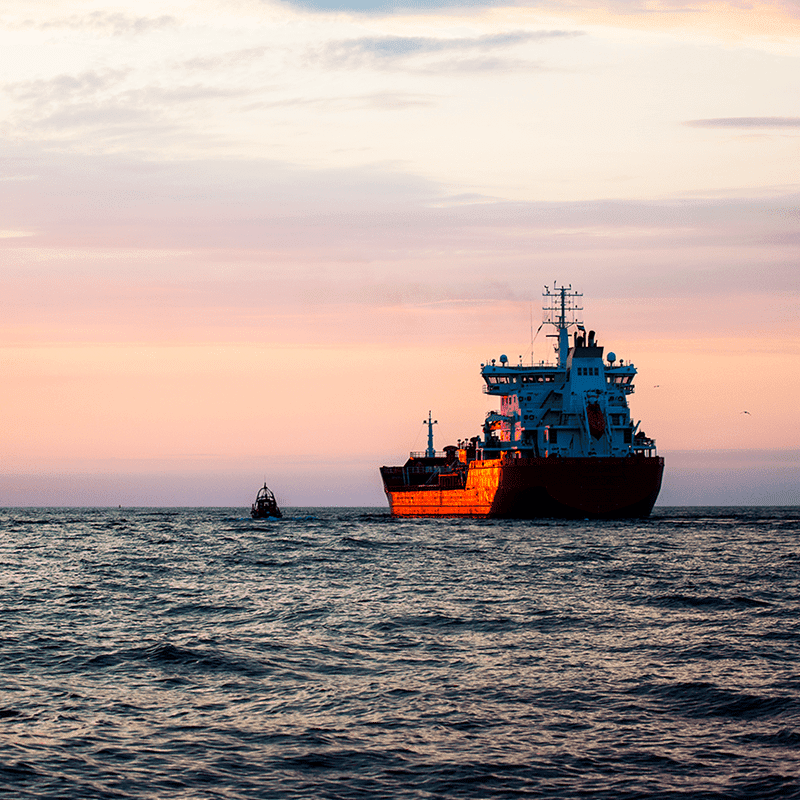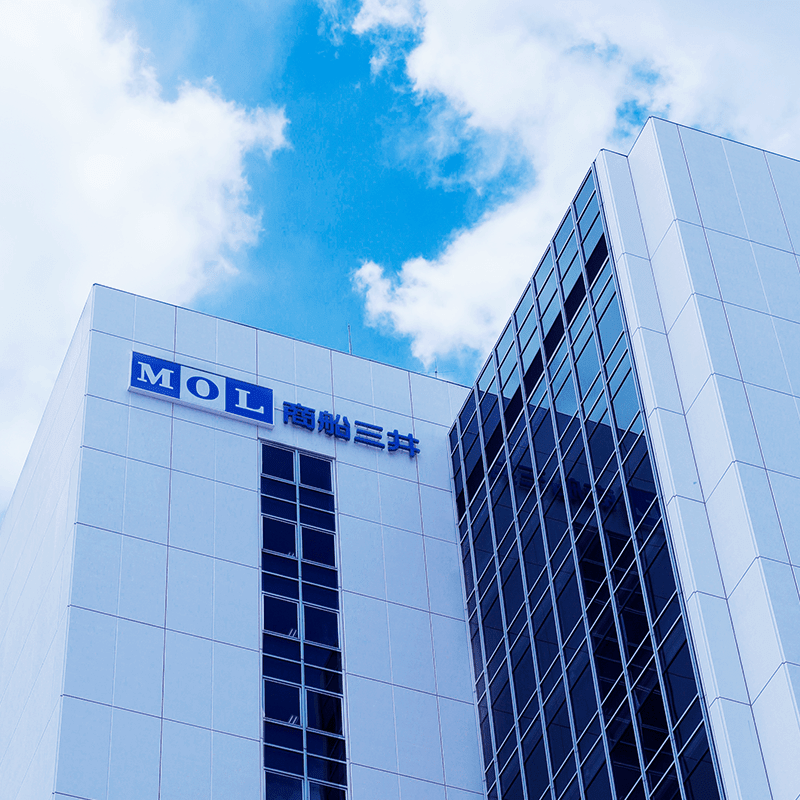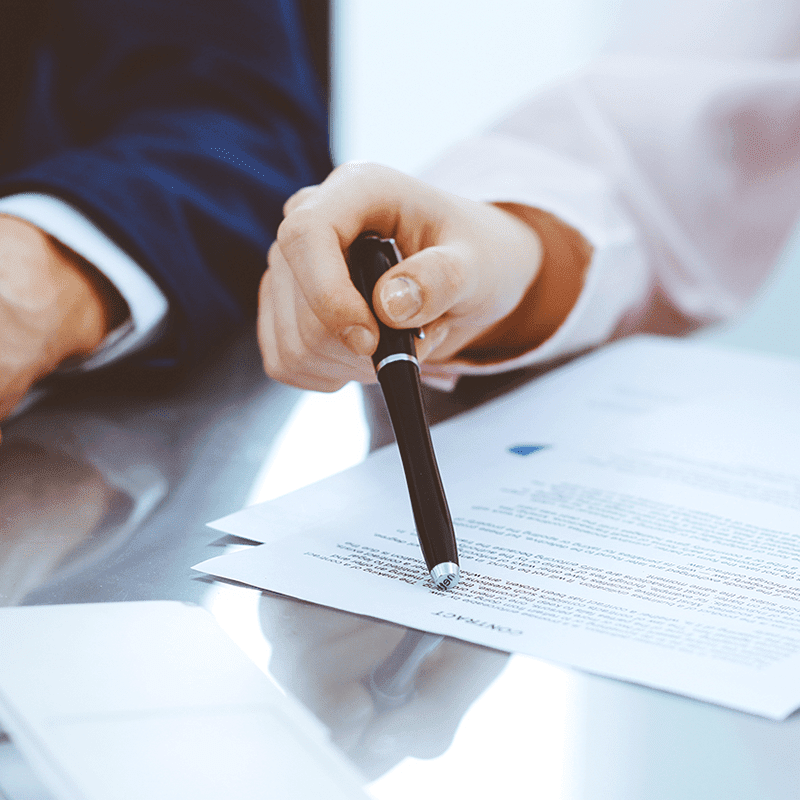BLOG
We attended COP29 in Azerbaijan!
- Eco Friendly
- General Shipping
2024.12.13
MOL participated in the 29th Conference of the Parties (COP29) to the United Nations Framework Convention on Climate Change (UNFCCC) held in Baku, Azerbaijan, from the 11th to 22nd November 2024.
In addition to our Chief Sustainability Officer (CSuO) Mr. Watanabe speaking at various events organized by various companies and organizations, we endorsed several statements and letters released in conjunction with COP29.
We are pleased to share with you our commitment to decarbonization given by our company at COP29, centered on CSuO Watanabe's appearance on the stage.
MOL’s participation in COP29
This is the second time that we have participated in the COP, following COP28 held in Dubai in 2023.
As a “First Mover” leading the way in decarbonizing the shipping industry, we have continued in our efforts to protect the global environment and realize a sustainable future. These efforts include the adopt clean energy, the improvement of operational efficiency, as exemplified by the Wind Challenger, and the promotion of Carbon Dioxide Removal (CDR).
COP29 is an important platform for promoting global awareness and action on climate change, and demonstrating our commitment to decarbonization on such an occasion was an excellent opportunity to reiterate our determination to contribute to the realization of a sustainable society.
CSuO Mr. Watanabe's speaking sessions and their impact
At COP29, CSuO Mr. Watanabe spoke at several events. Here is a summary of Mr. Watanabe's remarks which were not included in our press release:



First, in the following two sessions, we explained the impact of the International Maritime Organization's (IMO) medium- and long-term measures on the shipping industry and our efforts toward decarbonization, and discussed with participants policies and regulations to accelerate investment in clean fuels.
(1) Making clean industrial projects bankable - the need for demand-stimulation policies (14th November, hosted by the Industrial Transition Accelerator, and Breakthrough Agenda)
One participant stated that “fuel costs associated with the decarbonization of maritime transport are expected to increase by 480%,” but by sharing the burden with the entire society, the final increase in terminal prices can be limited to 1%. We hope that the regulations and framework that the IMO is aiming to introduce in 2027 will serve as a catalyst to bridge the price gap between conventional and decarbonized fuels, and that such a mechanism will be put in place. We hope that the regulatory framework that IMO is aiming to introduce in 2027 will help bridge the price gap between conventional and decarbonized fuels.
(2) Accelerating the deployment of E-fuels and the decarbonizing of hard-to-abate sectors (15th November, hosted by Green Power Denmark)
MOL is a member of the First Mover Coalition and will contribute to the industry through fuel conversion, efficient operations, and wind propulsion systems such as Wind Challenger. It is expected that the IMO's new regulations at next year's MEPC will bridge the fuel price gap and further promote our activities as a First Mover. Geographic factors must also be considered in the introduction of decarbonized fuels. We operate a diverse fleet of vessels and the ability to refuel at bunkering hubs would minimize the impact on our business. In addition, the safety and welfare of seafarers must be taken into consideration while implementing the system.
CSuO Mr. Watanabe also explained the significance of working on CDR (removal of carbon dioxide from the atmosphere) for the shipping industry and as a Japanese company.

Photo taken on 15th Nov. at the event. From left to right: Mr. Frederic Gagnon-Lebrun (Senior Director, Climate Policy, Finance & Carbon Markets, South Pole), Mr. Jamey Mulligan (Head of Carbon Neutralization Science & Strategy, Amazon), Mr. Steve Kelly (President and General Manager, 1PointFive), Ms. Kel Coulson(Director of Policy, Carbon Engineering), MOL CSuO Mr. Watanabe

(3) Unlocking Net-Zero: The Role of Carbon Dioxide Removals (15th November, hosted by NextGen)
MOL is decarbonizing through use of clean fuels and wind propulsion systems, but zero emissions are difficult to achieve on all vessels, so CDR is also being used. NextGen aims to purchase credits and gain knowledge of CDR technology. Currently, MOL is one of only a few participants in the sector that requires CDR, and expects other CDR buyers to increase their participation.
In addition, CSuO Mr. Watanabe gave a speech on future global warming countermeasures at the “TIME100 COP29 Impact Dinner,” a dinner gathering of international organizations and companies from around the world hosted by TIME magazine. Other speakers included the CEO of Fortescue, the Chief Commercialization Officer of the U.S. Department of Energy, and the Minister of the Environment of Colombia. Mr. Watanabe emphasized the importance of working through partnerships across a wide range of industries to decarbonize the shipping industry.


Statements we endorsed at COP 29
At COP29, we endorsed the following statement and letter, expressing our clear position on decarbonization:
(1) Alliance of CEO Climate Leaders COP29 Open Letter
In an open letter to COP29, led by the World Economic Forum, more than 100 CEOs and leaders called on governments to step up climate action. On MOL's behalf, President & CEO Takeshi Hashimoto endorsed the letter, which urges countries to develop ambitious and investable Nationally Determined Contributions (NDCs), expand climate finance, and phase out fossil fuel subsidies. More than 100 companies endorsed the letter, but MOL was the only Japanese shipping company to do so.
(2) Call to action “Green Hydrogen and Green Shipping”.
More than 50 leaders at COP29, from the shipping industry, shippers, energy producers, and others signed a call to action to accelerate the adoption of zero-emission fuels. The call to action, organized by the RMI, the UN “Climate Change High-Level Champions,” the UCL Energy Institute, and the UN Foundation, calls for investment in decarbonization through the adoption of zero-emission fuels.
The joint statement calls for swift and bold action, including accelerating zero emission fuel initiatives, increasing investment in zero emission ships, and developing green hydrogen infrastructure globally.
COP29 as seen by MOL staffs


COP29 Japan Pavilion. At this time, a seminar titled “Boost "UNEA Synergy Resolution" -Synergy-Building in National Climate and Biodiversity Strategies-” was being held by the Ministry of the Environment and The Institute for Global Environmental Strategies (IGES).

The biggest focus of COP29 this year was the financing of global warming countermeasures for developing countries. The summit-level meeting on the first day of the conference was reportedly weaker than last year because the leaders of developed countries, including Japan, China, Europe, and the United States, did not participate due to the proximity of the U.S. presidential election and the G20 schedule. However, the actual number of participants was about 70,000, the second largest after last year, and when I visited the venue, there was a noticeable high degree of energy among those present. Since the main theme of COP29 was “Finance,” the active participation of the Global South, Asia including China, and Russia was noticeable, in contrast to the reserved remarks of the developed countries.
In the pavilion area, highlights of the COP included not only the innovative technologies and achievements exhibited and disseminated by governments and international organizations, but also the interactive sessions and lively discussions that were held. It was impressive to witness the enthusiasm for climate change action and the use of COP29 as a venue for engagement among visitors.
The Republic of Azerbaijan, the host country of COP29, is a landlocked country located on the border between Eastern Europe and Western Asia, with the neighboring countries of Russia, Turkey, Armenia, and Iran. While Azerbaijan borders a number of politically unstable countries, it continues to enjoy stable economic growth, supported by its abundant fossil fuel resources. The buildings and roads in the capital city of Baku are beautifully maintained, and I realized that energy exports have brought Azerbaijan political and economic prosperity.

The next COP30 will be held in Belem, northern Brazil.
Learn more about our initiatives here.
Recommended Articles
2022.07.05
- General Shipping
2021.04.13
- Energy
2025.03.18
- General Shipping
2021.08.07
- Eco Friendly
Latest Articles
2026.02.02
- Eco Friendly
- General Shipping
2026.01.20
- Eco Friendly
- General Shipping
2025.12.09
- Eco Friendly
- General Shipping










